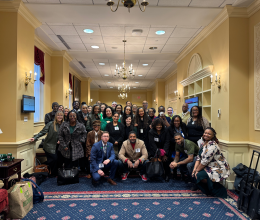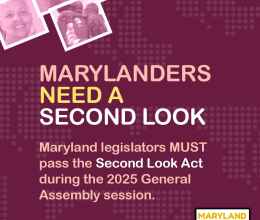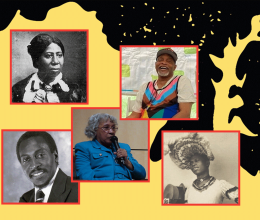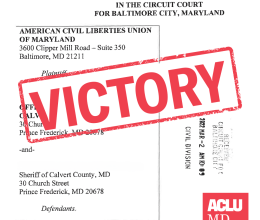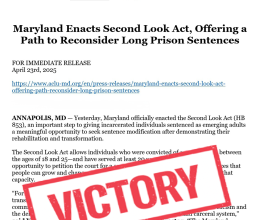
MEDIA RELEASE
ACLU Calls Proposed Hurlock Voter ID Law
Unconstitutional, Discriminatory
FOR IMMEDIATE RELEASE:
August 17, 2011
CONTACT: Meredith Curtis, ACLU of Maryland, 410-889-8555; media@aclu-md.org
BALTIMORE - The American Civil Liberties Union of Maryland today joined with the Dorchester County Branch of the NAACP in urging the Hurlock Mayor and Council to vote down a proposed Charter Amendment that would require voters to present a State-issued photo identification to cast a ballot at the polls. In a letter to Town officials, the ACLU warns that the proposal is unconstitutional under Maryland law, and that it is also likely to result in discriminatory effects upon poor and minority voters.
The proposal is set to be discussed this evening at a community meeting in Hurlock, organized by Hurlock Council President Charles Cephas, and voted on by the Council on August 22.
The proposed amendment states that Hurlock "voters shall produce a State of Maryland photographic identification as an additional requirement in order to vote in any Town election." The ACLU and the NAACP have long opposed such requirements because they erect barriers to voting by the poor and minorities. The groups also maintain that voter identification laws like the Hurlock proposal are neither necessary nor permissible under Maryland law. No voter identification requirement exists for federal, state, or local elections in Maryland,, and yet there exists no documented evidence of individual voter fraud in any Maryland elections.
"Voter identification laws seek to fix a problem that does not exist," said ACLU Legal Director Deborah Jeon. "Instead, voter ID requirements infringe upon the fundamental right to vote, and disenfranchise poor and minority voters who are less likely to have a state photo ID and sometimes cannot afford to pay for the documents needed to secure one."
The right to vote in Maryland is explicitly established by the Maryland Constitution, and the Courts have ruled that no additional qualifications may be imposed by the government beyond the requirements of age, residency, and registration set out there:
Every citizen of the United States, of the age of 18 years or upwards, who is a resident of the State as of the time for the closing of registration next preceding the election, shall be entitled to vote in the ward or election district in which he resides at all elections to be held in this State.
Said James Pinkett, President of the Dorchester NAACP, "While it may not be the purpose of the proposal to thwart the right to vote of poor and minority residents, the experience of the NAACP across the country has been that these laws primarily impact these groups and shamefully disenfranchise them."
###
